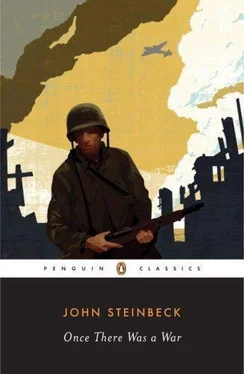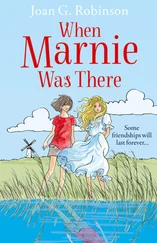John Steinbeck - Once there was a war
Здесь есть возможность читать онлайн «John Steinbeck - Once there was a war» весь текст электронной книги совершенно бесплатно (целиком полную версию без сокращений). В некоторых случаях можно слушать аудио, скачать через торрент в формате fb2 и присутствует краткое содержание. Город: New York, Год выпуска: 1960, Издательство: Bantam Books, Жанр: Классическая проза, на английском языке. Описание произведения, (предисловие) а так же отзывы посетителей доступны на портале библиотеки ЛибКат.
- Название:Once there was a war
- Автор:
- Издательство:Bantam Books
- Жанр:
- Год:1960
- Город:New York
- ISBN:нет данных
- Рейтинг книги:3 / 5. Голосов: 1
-
Избранное:Добавить в избранное
- Отзывы:
-
Ваша оценка:
- 60
- 1
- 2
- 3
- 4
- 5
Once there was a war: краткое содержание, описание и аннотация
Предлагаем к чтению аннотацию, описание, краткое содержание или предисловие (зависит от того, что написал сам автор книги «Once there was a war»). Если вы не нашли необходимую информацию о книге — напишите в комментариях, мы постараемся отыскать её.
Once there was a war — читать онлайн бесплатно полную книгу (весь текст) целиком
Ниже представлен текст книги, разбитый по страницам. Система сохранения места последней прочитанной страницы, позволяет с удобством читать онлайн бесплатно книгу «Once there was a war», без необходимости каждый раз заново искать на чём Вы остановились. Поставьте закладку, и сможете в любой момент перейти на страницу, на которой закончили чтение.
Интервал:
Закладка:
Beside the no. 1 hangar there is a little mound of earth covered with short, heavy grass. At 12:15 the ground men begin to congregate on it and sweat out the homecoming. Rumor comes with the crew chief that they have reported, but it is rumor. A small dog, which might be a gray Scottie if his ears didn’t hang down and his tail bend the wrong way, comes to sit on the little mound. He stretches out and puts his whiskery muzzle on his outstretched paws. He does not close his eyes and his ears twitch. All the ground crews are there now, waiting for their ships. It is the longest set of minutes imaginable.
Suddenly the little dog raises his head. His body begins to tremble all over. The crew chief has a pair of field glasses. He looks down at the dog and then aims his glasses to the south. “Can’t see anything yet,” he says. The little dog continues to shudder and a high whine comes from him.
And there they come. You can just see the dots far to the south. The formation is good, but one ship flies alone and ahead. “Can you see her number? Who is she?” The lead ship drops altitude and comes in straight for the field. From her side two little rockets break, a red one and a white one. The ambulance, they call it the meat wagon, starts down the runway. There is a hurt man on that ship.
The main formation comes over the field and each ship peels to circle for a landing, but the lone ship drops and the wheels strike the ground and the Fortress lands like a great bug on the runway. But the moment her wheels are on the ground there is a sharp, crying bark and a streak of gray. The little dog seems hardly to touch the ground. He streaks across the field toward the landed ship. He knows his own ship. One by one the Fortresses land and the ground crews check off the numbers as they land. Mary Ruth is there. Only one ship is missing and she landed farther south, with short fuel tanks. There is a great sigh of relief on the mound. The mission is over.
DAY OF MEMORIES
LONDON, July 4, 1943 —
All the day there have been exercises and entertainments for the troops on leave in London. Everything that can be done for a guest has been done. There was a hay ride this morning. There have been exercises and dances and speeches, excursions to points of interest. The British and the Canadians and the others have been extra friendly. The bands in the parks played “The Star-Spangled Banner” and “Dixie” and “Home, Sweet Home.” Everything has been done that can be done and this is a city of the most abject homesickness.
The speaker said in clipped and concise English, “We welcome you again on this day that is dear to you.” And the minds were on the red-necked politician, foaming with enthusiasm and bourbon whisky, screaming the eagle on a bunting-covered platform while his audience longed for the watermelon and potato salad to come.
The conductors of parties said, “We are going to the Tower of London. It is in a sense the cradle of English civilization”—the fat man’s race, the three-legged race, the squeals of women running with eggs in tablespoons, the smell of barbecuing meat on a deep pit.
The band played beautifully in Trafalgar Square a dignified and compelling march — and Coney Island, in its welter of squalling children, the smell of ice cream and peanuts and water-soaked cigar butts, the surf, one-third water and two-thirds people, fighting their way through the grapefruit rinds, the squeak and bellow of honky-tonk music.
Soldiers have paraded in London, men who marched like clothed machines, towering men, straight as their own rifles and their hands swinging — at home, the knights of this and that in wilted ostrich-plumed hats, in uniforms out of the moth-balls again, knights who were butchers last evening, and clerks and tellers of the local bank, but knights now, out of step, shambling after their great banner, their tinsel swords at all angles over their shoulders, the knights of this and that.
The hospitable people of London have served flan and trifle, biscuits and tea, marmalade, gin and lime, scotch and water, and beer — hot dogs, with mustard drooling from the lower end and running up your sleeve. Hamburgers, with raw onions spilling out of the round buns. Popcorn dripping with butter. The sting of neat whisky and the barrels of beer set on trestles. Chocolate cakes and deviled eggs, but mostly hamburgers with onions, and which will have you have, piccalilli or dill or mayonnaise, or all of them?
The cool girls dance well and they are pleasant and friendly. They work hard in the war plants, and it’s a job to get a dress so neatly pressed. The lipstick is hard to get, and the perfume is the last in the bottle. Neat and pretty and friendly. At home the sticky kisses in the rumble seat and the swatting at mosquitoes on a hot, vine-covered porch. And in the joints the juke box howls and its basses thump the air. When you say something the girl knows the proper answer. None of it means anything, but it all fits together. Everything fits together.
This is a time of homesickness, and Christmas will be worse. No grandeur, no luxury, no interest can cut it out. No show is as good as the double bill at the Odeon, no food is as good as the midnight sandwich at Joe’s, and no one in the world is as pretty as that blond Margie who works at the Poppy.
When they come home they’ll be a little tiresome about London for a long time. They will recall exotic adventures and strange foods. Piccadilly and the Savoy and the White Tower, the Normandie Bar and the place in Soho will drip from their conversation. They will compare notes enthusiastically with other soldiers who were here. The cool girls will grow to strange and romantic adventures. The lonesome little glow will be remembered as a Bacchic orgy. They will remember things they did not know that they saw — St. Paul’s against a lead-colored sky and the barrage balloons hanging over it. Waterloo Station, the sandbags piled high against the Wren churches, the excited siren and the sneak air raid.
But today, July 4, 1943, they wander about in a daze of homesickness, seeing nothing, hearing nothing but the faces and voices of their own people.
THE PEOPLE OF DOVER
DOVER, July 6, 1943 —
Dover, with its castle on the hill and its little crooked streets, its big, ugly hotels and its secret and dangerous offensive power, is closest of all to the enemy. Dover is full of the memory of Wellington and of Napoleon, of the time when Napoleon came down to Calais and looked across the Channel at England and knew that only this little stretch of water interrupted his conquest of the world. And later the men of Dunkerque dragged their weary feet off the little ships and struggled through the streets of Dover.
Then Hitler came to the hill above Calais and looked across at the cliffs, and again only the little stretch of water stopped the conquest of the world. It is a very little piece of water. On the clear days you can see the hills about Calais, and with a glass you can see the clock tower of Calais. When the guns of Calais fire you can see the flash, while with the telescope you can see from the castle the guns themselves, and even tanks deploying on the beach.
Dover feels very close to the enemy. Three minutes in a fast airplane, three-quarters of an hour in a fast boat. Every day or so a plane comes whipping through and drops a bomb and takes a shot or so at the balloons that hang in the air above the town, and every few days Jerry trains his big guns on Dover and fires a few rounds of high explosive at the little old town. Then a building is hit and collapses and sometimes a few people are killed. It is a wanton, useless thing, serving no military, naval, or morale business. It is almost as though the Germans fretted about the little stretch of water that defeated them.
Читать дальшеИнтервал:
Закладка:
Похожие книги на «Once there was a war»
Представляем Вашему вниманию похожие книги на «Once there was a war» списком для выбора. Мы отобрали схожую по названию и смыслу литературу в надежде предоставить читателям больше вариантов отыскать новые, интересные, ещё непрочитанные произведения.
Обсуждение, отзывы о книге «Once there was a war» и просто собственные мнения читателей. Оставьте ваши комментарии, напишите, что Вы думаете о произведении, его смысле или главных героях. Укажите что конкретно понравилось, а что нет, и почему Вы так считаете.









